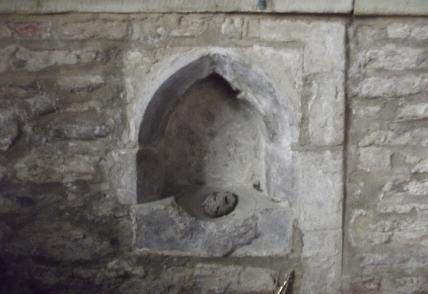Keyingham St Nicholas
church web site
Philip Ingleberd
Philip Ingleberd was a native of Beverley, studied at University College Oxford, and received Holy Orders as a Fellow of that college before becoming one of the foremost divines in Oxford and a scholar of international repute. In 1306, the Prior of Birstall instituted him as Rector of Keyingham, and he remained here until the end of his life, about 20 years. He was responsible for enlarging the chancel, making it longer and wider. Also, he probably founded the chantry chapel, to the south of the chancel, where a priest would have been employed to say mass daily, usually for the soul of the founder. During his time, Norman windows were replaced by modern ones with Y tracery, similar to those in the tower. A fine east window was built to replace a narrow round-headed Norman arch. The piscina, a shallow bowl draining to the outside where the priest could wash his hands before consecrating the bread and wine, to the right of the altar, is also from this time.
Philip's life became legendary, and there are stories of the healing power of his touch. It is as Saint Philip that we remember him. There was a well in a field to the west of the village that was known as Saint Philip's Well, with apparently miraculous powers, also Saint Philip's Cross in the village, the base of which remains. Although historians have doubted that he spent a great deal of time in the village, at least some years of his incumbency being spent at University College Oxford, there is no doubt that he chose to be buried in the chantry chapel, more or less where the vestry is now situated. On June 24th 1392, St John the Baptist's day, a fearsome storm arose, the Church was struck by lightning and caught fire. One side of the tower collapsed, stones were torn from the walls, doors were broken in two, and the roof was destroyed, yet St Philip’s tomb was untouched, and oozed out a sweet-scented oil which was found to be miraculous. Although a ladder with thirteen men on it (Health and Safety precautions being different at that time) fell with enough force to break a heavy stone, nobody was injured.
Next: The Fourteenth and Fifteenth Centuries
Back to the History navigation menu

The Piscina to the right of the altar